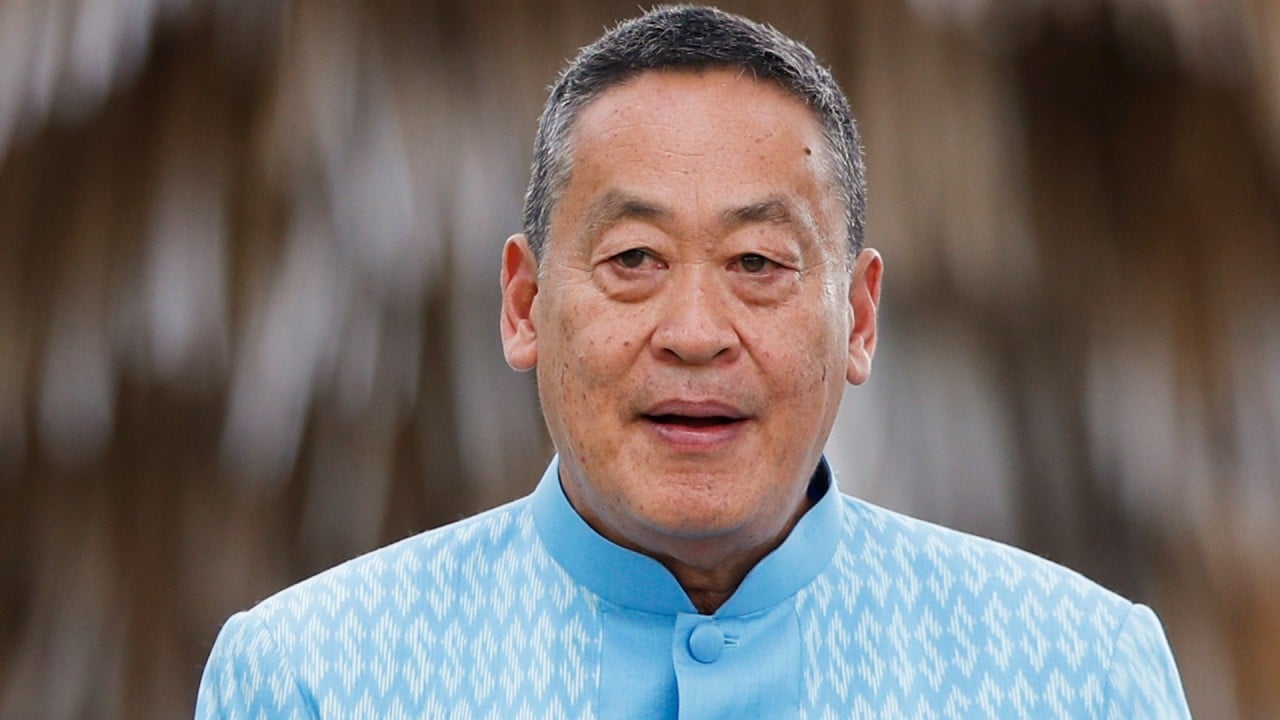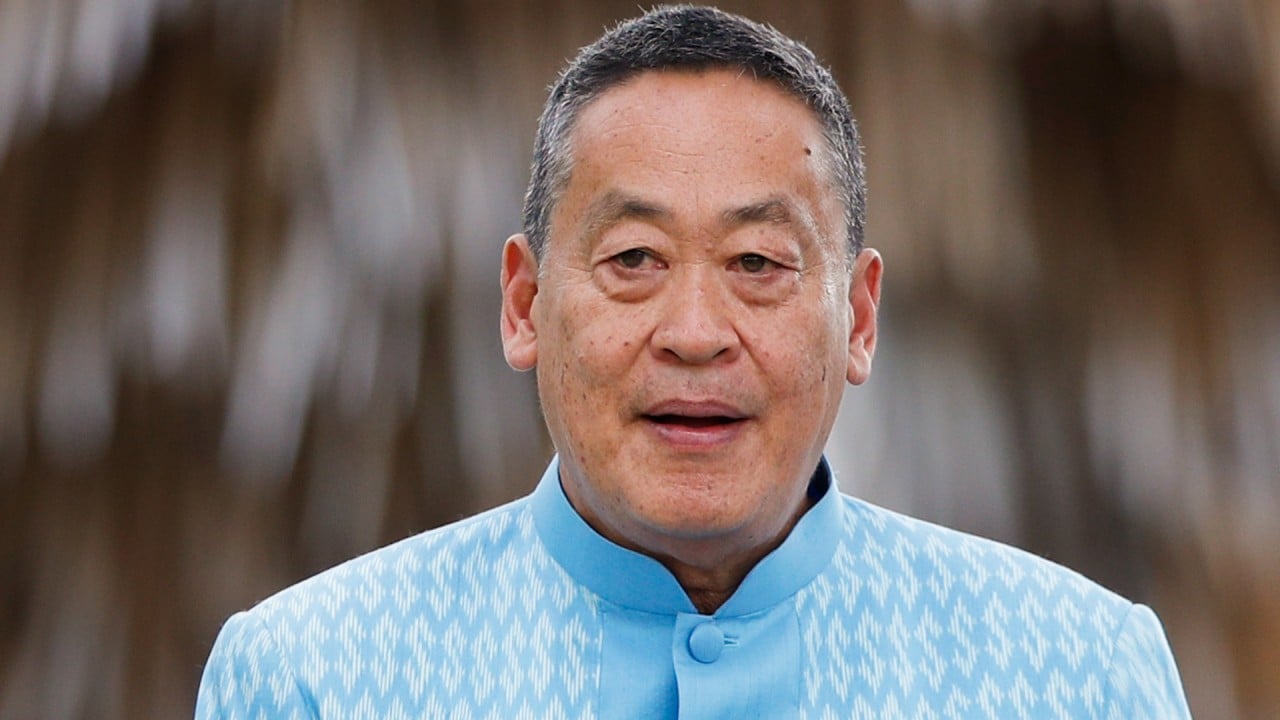The appointment of Paetongtarn Shinawatra – a politically inexperienced novice – as Thailand’s new prime minister will mean that she will remain under the tutelage and in the “shadow” of her father, former leader Thaksin Shinawatra, who will “hold sway” over policymaking, analysts have said.
On Friday, Thailand’s parliament voted the 37-year-old Paetongtarn to be the country’s next prime minister after the ruling Pheu Thai party nominated her to replace dismissed leader Srettha Thavisin.
The move comes two days after the country’s top court sacked Srettha over his decision to appoint a minister who had a criminal conviction.
The youngest child of billionaire tycoon Thaksin Shinawatra, Paetongtarn would become the latest member of the family after her father and aunt Yingluck Shinawatra to hold the nation’s top job and the second woman to lead Thailand.
Srettha’s removal was the latest development in a long-running battle between the military, pro-royalist establishment and populist parties linked to Thaksin, who shook up the country’s staid politics when he was first elected prime minister in 2001.
Noting that Paetongtarn had little experience in politics, Pavin Chachavalpongpun, a professor at the Centre for Southeast Asian Studies in Japan’s Kyoto University, said her political career was possible simply because she was Thaksin’s daughter.
“Since stepping into the role of the leader of Pheu Thai, she has continued to make controversial statements, she said what she could not deliver and this has affected her credibility and leadership,” Pavin said.

For instance, even though Paetongtarn called out former prime minister Prayuth Chan-ocha for staging a coup, her party’s governing coalition later included two pro-military parties affiliated with the general.
Adding that Pheu Thai was still very much dominated by Thaksin, Pavin said the new prime minister would “undoubtedly” be “under the shadow of her father, just like Srettha under the shadow of Thaksin”.
“She will be the puppet of her dad,” he added.
Agreeing, Ken Mathis Lohatepanont, a PhD student in political science at the University of Michigan, said not very much was known about Paetongtarn’s style of leadership, given that she had never served as a cabinet minister and had been the leader of Pheu Thai for less than a year.
“The general sentiment is that, as the youngest prime minister in history, she is relatively inexperienced,” he said, which meant that behind the scenes, Thaksin was likely to take an even greater role in politics and “hold even more sway” over policymaking.
Said to be the most influential figure in the country, Thaksin made a dramatic return to Thailand last year after 15 years of self-imposed exile, during which the political heavyweight remained a central figure throughout repeated bouts of political upheaval.
Even though he was convicted of abuse of power and conflicts of interest and sentenced to eight years in prison, Thaksin was released on parole in February after just six months in detention.
Greg Raymond, a Southeast Asia expert at the Australian National University, said that as a relative newcomer to politics armed with a business background in hotel management, Paetongtarn had stated clearly during the campaign that she was aware of her inexperience and would “rely heavily on advice”.
“We could expect her father to be among those offering advice.”
Raymond noted that Paetongtarn could struggle to build strong relationships with foreign leaders as she was “not a particularly strong or confident English speaker” and would “probably be inclined to travel less than Srettha”.
Some of Srettha’s pet projects, such as the digital wallet and the Landbridge project, could be abandoned, Raymond said.
The former refers to the 450-billion-baht (US$12.8 billion) scheme for digital handouts of 10,000 baht that is aimed at stimulating spending but has been criticised for the vast government budget involved.
The latter involves the construction of deep-sea ports in Chumphon and Ranong provinces and railway and highway links between the two ports, connecting the Gulf of Thailand and the Andaman Sea, and is estimated to cost 1 trillion baht.
“Pheu Thai will also struggle to be competitive against the People’s Party at the next election, and may become increasingly beholden to the conservative military proxy parties,” Raymond added.

Mainland China and Hong Kong ties
Lohatepanont said there would be substantial policy continuity towards China with Paetongtarn in office, given that Thaksin had pursued many initiatives to strengthen economic ties with Beijing when he was prime minister.
The policy continued under Srettha, who agreed with Beijing to waive visa requirements for each other’s citizens from March, Lohatepanont added.
The Shinawatras also regularly visit Hong Kong and are known to use the city as a base to meet political and business partners. In 2005, Thaksin – as prime minister – visited his ancestral home in southern China’s Meizhou city in Guangdong and met several of his uncle’s descendants.
ANU’s Raymond said the Shinawatras had always been “pragmatic” when it came to China, seeing the Asian behemoth as primarily an “economic opportunity”, a view also shared by Beijing.

“China has never shown any particular sentimentality, adjusting rapidly when Thaksin was removed in a coup in September 2006. Paetongtarn can be expected to continue a strong economic focus on China, seeking investment and trade,” Raymond said, noting that issues relating to human rights and democracy would not be allowed to obstruct those goals.
Pointing to the family’s “deep links” with the Chinese leadership, Pavin of Kyoto University said Thaksin had often travelled to mainland China and Hong Kong while in exile and such links could help sustain the Shinawatras’ power in Thailand “or even give them the legitimacy they need from a powerful ally”.
“But they also learn that China has made friends with everyone in the Thai political circle. So they have to be watchful in conducting their relationship with China,” Pavin said.
“This is the worst case of dynastic politics in Thailand. Another member from the Shinawatra would only entrench the patronage system in Thai politics.”



